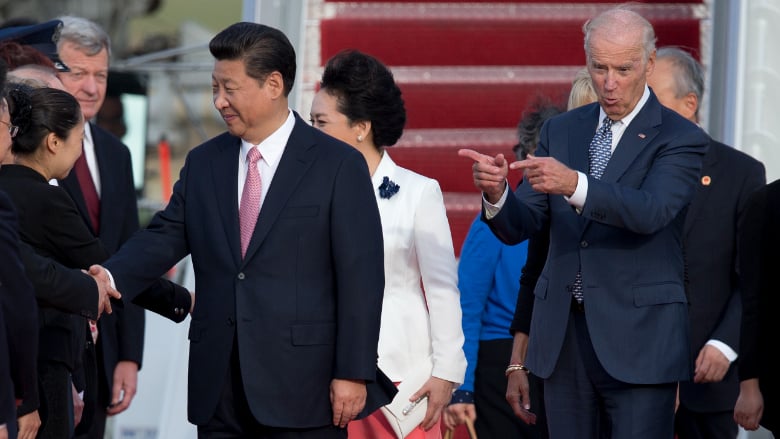President Biden met President Xi Jinping in Indonesia last week and told the world that there need not be a new cold war. Is he serious?
Any observer watching world politics now understands that America is trying to reduce Chinese growth and Chinese power. At the same time, the Chinese government does not hide that it would like to replace the United States at the center of the international system. Last April the Chinese President in a speech laid out his new “Global Security Initiative” that insists countries and societies can choose their own domestic systems. Xi made clear that Biden’s promotion of human rights and democracy in other countries is not a good basis for international relations. Thus, just like the ideological competition between the Communist Soviet Union and the democratic United States in the Cold War, there is now an ideological element in the Chinese-American competition.
And this cold war mentality is obvious in American trade strategy with China. The days of boosting trade and economic integration with China are gone. Instead, as during the cold war with the Soviet Union, Washington is trying to weaken the Chinese economy. Most importantly, the Biden administration is undertaking to block the export to China of advanced computer chips and the technology to manufacture them. These chips are at the center of modern economies. China last year imported 300 billion dollars of the chips, more than its imports of oil.
Washington has been very clear about its goal: it wants to impede China’s ability to develop its own capacity to produce the advanced chips which have commercial and military applications. Moreover, again like the old Cold War, Washington is exerting pressure on its allies to follow its sanctions policy on China. For example, it is pressing the Dutch and Japanese governments to block sales from their companies from selling advanced chip-making technologies to China. Singapore’s Foreign Minister, watching this unilateral American effort, called the American policy “all but a declaration of technological war.”
Moreover, the Biden administration which replaced Donald Trump’s team in 2021 promising better relations with traditional allies now is forcing allies like Japan, South Korea and the Netherlands that engage in technology trade with China to choose sides, something that they do not want to do.
Biden also said in Indonesia last week that a Chinese attack on Taiwan is not “imminent.” However, his reassuring tone leads me to wonder why he has repeatedly said this year that the United States would defend Taiwan if China attacks. These statements were a big change in the traditional American ambiguity about defending Taiwan that began with former Secretary of State Henry Kissinger when he negotiated the American opening to China in 1972.
Xi reiterated in Indonesia last week that Taiwan is a “fundamental” Chinese interest. I understood from Biden’s statement that Washington doubts China would attack in 2022 or maybe 2023 but after that Washington does not know. Following the traditional cold war strategy, in order to deter China, the new NATO is a four-way alliance with India, Japan and Australia that Washington is building. And it is no coincidence that Biden is hosting African leaders next month in Washington. The guest list that includes various dictators and thus promoting democracy and human rights is obviously not the goal of the meeting.
The Chinese for their part also recognize the new cold war. They will try to build up their own technological capabilities despite American sanctions, and at its October conference the Communist Party leadership brought into the Politburo and Central Committee more members with technology expertise in fields like aerospace, biotechnology, semiconductors and artificial intelligence.
Nonetheless, China appears not to want major confrontation now with the United States. China did not retaliate for the new American semiconductor sanctions. Instead, President Xi agreed to establish working groups with the Americans on issues like climate change. These working groups strengthen dialogue between the bureaucracies in the two governments.
More dialogue will be a good thing in the months ahead. The new Republican Party majority in the House of Representatives will anger Beijing by pushing for bigger arms sales to Taiwan and holding public hearings that blame China for the spread of the Coronavirus. The new Speaker of the House of Representatives may visit Taiwan. The visit of the previous Speaker in August provoked a harsh Chinese response, including cutting off all dialogue with Washington on international issues. Biden and Xi have restored that dialogue for now. Direct communication about perceived interests and threats is useful to avoid unnecessary conflict. I have always appreciated the Caliph Muawiya’s remark that “if there be one hair binding me to my fellow men, I do not let it break. If they pull, I loosen, and if they loosen, I pull.”





